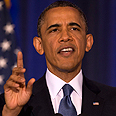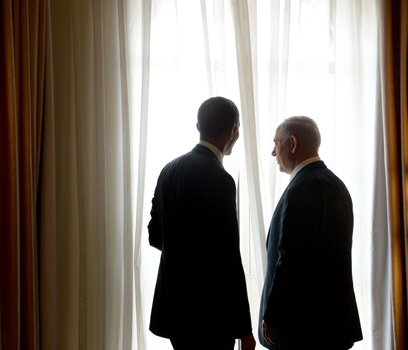
The Obama administration has begun helping Middle Eastern allies build up their defenses against Iran’s growing arsenal of cyberweapons, and will be doing the same in Asia to contain computer-network attacks from North Korea, senior American officials told the New York Times .
The new project to counter Iran’s computer abilities was prompted by the attack against Saudi Aramco, Saudi Arabia’s largest, state-run oil producer, which crippled 30,000 computers, and was allegedly carried out by Iran.
Related stories:
- Obama, China's Xi seek to ease tensions on cyber security
- Report: US traces cyber attack wave to Iran
- Report: Syria cyber attacked Haifa's water system
“The Iranian attack on the Saudis was a real wake-up call in the region,” said one senior administration official. “It made everyone realize that while the Iranians might think twice about launching a missile attack in the region, they see cyber as a potent way to lash out in response to sanctions.”
The Pentagon is drawing up proposals for providing advanced hardware and software for computer-network defense that could be sold throughout the Persian Gulf, much as American aircraft and missiles are sold to Arab allies, the New York Times wrote.

Netanyahu, Obama (Photo: Avi Ohayon, GPO)
Officials told the New York Times that future joint war games would include simulated cyberattacks, similar to the one Iran conducted against Saudi Aramco.
The new interagency effort in Washington comes at a time when Israeli and American intelligence officials have been concerned by Iran’s swift advances in its computer weaponry, particularly its ability to disrupt existing infrastructure. As one former senior American military commander said recently, “They have startled everyone with the speed at which their capabilities have increased.”
In addition, American officials say Iran now is believed to be hiring foreign computer programmers associated with Internet criminal activity, some from Russia, said the New York Times.
Furthermore, Iran and other nations now are able to purchase powerful malware that, while costly, is available on the black and gray markets — and can quickly advance the potency of a nation’s destructive ability across computer networks.
In the rankings of computer powers, Iran and North Korea are far lower in ability than the United States, Israel, Britain, Russia and China.
China and Russia, however, have strong incentives to limit the destructiveness of their attacks; they are so tied into the global economy that anything truly disruptive to financial or energy markets would backfire. But North Korea and Iran, especially in times of rising tensions, would be less prone to show restraint, American officials say.
Top-secret directive
The British Guardian released a report on Friday revealing a US top-secret directive to step up offensive cyber capabilities to 'advance US objectives around the world,' including an order to draw up a list of potential overseas targets for US cyber-attacks.
It says the government will "identify potential targets of national importance where Offensive Cyber Effects Operations (OCEO) can offer a favorable balance of effectiveness and risk as compared with other instruments of national power".
According to the Guardian, the directive also contemplates the possible use of cyber actions inside the US, though it specifies that no such domestic operations can be conducted without the prior order of the president, except in cases of emergency.
The document includes caveats and precautions stating that all US cyber operations should conform to US and international law, and that any operations "reasonably likely to result in significant consequences require specific presidential approval".
The document says that agencies should consider the consequences of any cyber-action. They include the impact on intelligence-gathering; the risk of retaliation; the impact on the stability and security of the internet itself; the balance of political risks versus gains; and the establishment of unwelcome norms of international behaviour.
Among the possible "significant consequences" are loss of life; responsive actions against the US; damage to property; serious adverse foreign policy or economic impacts.
The Guardian noted that Obama's move to establish a potentially aggressive cyber warfare doctrine will heighten fears over the increasing militarization of the internet.
The directive's publication comes as the president plans to confront his Chinese counterpart Xi Jinping at a summit in California on Friday over alleged Chinese attacks on western targets.
- Receive Ynetnews updates
directly to your desktop















